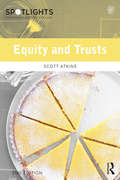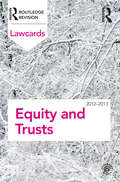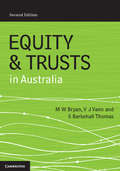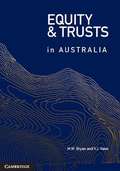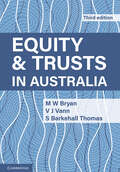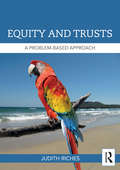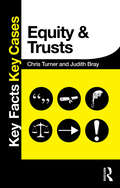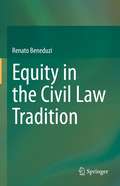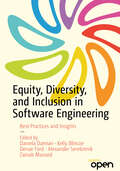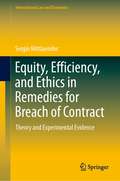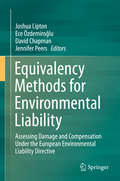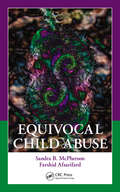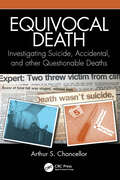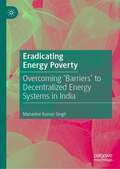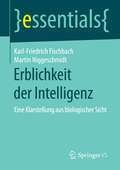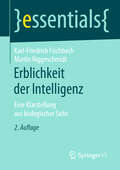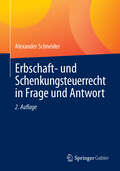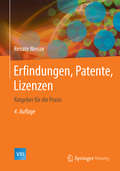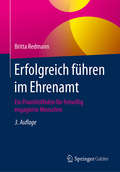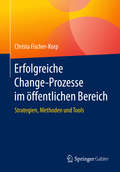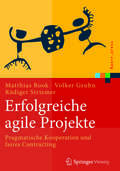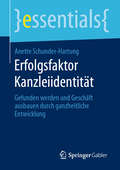- Table View
- List View
Equity and Trusts
by Scott AtkinsEquity and Trusts is an ideal choice for all undergraduate and GDL students looking for a comprehensive yet accessible textbook on this complex area of law. The author’s clear writing style, plentiful explanations and focus on modern case law demystify difficult concepts and help to bring the subject to life. Equity and Trusts is shown to be a live, growing and developing subject, with an important historical underpinning that ensures students gain a sound grasp of key material and understand both its history and current application. Clearly written and easy to use, Equity and Trusts enables students to fully engage with the topic and gain a profound understanding of this fundamental area. The Routledge Spotlights series brings a modern, contemporary approach to the core curriculum for the LLB and GDL which will help students Move beyond an understanding of the law Refine and develop the key skills of problem-solving, evaluation and critical reasoning which are essential to exam success Discover sources and suggestions for taking your study further By focusing on recent case law and real-world examples, Routledge Spotlights will help you shed light on the law, understand how it operates in practice and gain a unique appreciation of the contemporary context of the subject. Companion Website www.routledge.com/cw/spotlights This book is supported by a range of online resources developed to support your learning, keep you up-to-date and to help you prepare for assessments.
Equity and Trusts Lawcards 2012-2013 (Lawcards)
by RoutledgeRoutledge Lawcards are your complete, pocket-sized guides to key examinable areas of the undergraduate law curriculum and the CPE/GDL. Their concise text, user-friendly layout and compact format make them an ideal revision aid. Helping you to identify, understand and commit to memory the salient points of each area of the law, shouldn’t you make Routledge Lawcards your essential revision companions? Fully updated and revised with all the most important recent legal developments, Routledge Lawcards are packed with features: Revision checklists help you to consolidate the key issues within each topic Colour coded highlighting really makes cases and legislation stand out Full tables of cases and legislation make for easy reference Boxed case notes pick out the cases that are most likely to come up in exams Diagrams and flowcharts clarify and condense complex and important topics '...an excellent starting point for any enthusiastic reviser. The books are concise and get right down to the nitty-gritty of each topic.' - Lex Magazine Routledge Lawcards are supported by a Companion Website offering: Flashcard glossaries allowing you to test your understanding of key terms and definitions Multiple Choice Questions to test and consolidate your revision of each chapter Advice and tips to help you better plan your revision and prepare for your exams Titles in the Series: Commercial Law; Company Law; Constitutional Law; Contract Law; Criminal Law; Employment Law; English Legal System; European Union Law; Evidence; Equity and Trusts; Family Law; Human Rights; Intellectual Property Law; Jurisprudence; Land Law; Tort Law
Equity and Trusts in Australia
by Thomas Bryan M W Vann V J S BarkehallIncorporating recent case law developments, the second edition of Equity and Trusts in Australia provides undergraduate and Juris Doctor students with a current and accessible introduction to Australian equitable and trust law. Expanding upon first edition content, the text includes greater depth of topic discussion, explanation of key theories and terminology, while demonstrating how these are applied in practice. Chapters including Fiduciary Obligations, Resulting Trusts and Constructive Trusts have been reworked to strengthen the text's coverage of all facets of equity and trusts law. Equity and Trusts in Australia, second edition links key doctrines to their wider relationship with the law, making it a fundamental text for students embarking on this area of study for the first time.
Equity and Trusts in Australia
by M. W. Bryan V. J. VannEquity and Trusts in Australia is a practical and engaging introduction to equitable and trusts law in Australia. Drawing on the authors' collective 45 years of teaching experience, this text is carefully designed to cater to the needs of undergraduate law and Juris Doctor students approaching equity and trust law for the first time. The book provides a succinct, clear and accessible explanation of key theories and terminology in equitable and trust law, and demonstrates how these are applied in practice with simple, topical examples. Comprehensively cross-referenced, it draws links between equitable and trusts doctrines and their wider relationships to the law. The companion website, at www. cambridge. edu. au/academic/equity is an invaluable resource for students and lecturers, featuring further reading, discussion points and practice exercises and solutions.
Equity and Trusts in Australia
by Michael Bryan Vicki Vann Susan Barkehall ThomasEquity and Trusts in Australia offers an accessible introduction to the principles of Australian equity and trusts law for students, linking key doctrines to their wider relationship with the law. The text covers foundational topics of equity and trusts law, including the nature of equity, fiduciary relationships and trust structures. This edition has been revised to include recent landmark decisions and a new chapter on termination and variation of trusts. Each chapter concludes with a guide to the online resources, which encourage students to extend their knowledge of the content through further reading, practice problems and discussion topics. Written by a team of experienced authors, Equity and Trusts in Australia is an ideal text for students undertaking this area of study for the first time. A Sourcebook on Equity and Trusts in Australia is also available and provides cases and primary legal materials to accompany Equity and Trusts in Australia.
Equity and Trusts: A Problem-Based Approach (Problem Based Learning)
by Judith RichesEquity and Trusts: A Problem-Based Approach creates a fresh approach to learning through the use of integrated realistic case studies designed to simulate how the law works in practice. With comprehensive coverage of the complete equity and trusts curriculum, unlike other textbooks, it integrates a thorough exposition of the legal rules with applied problem-solving opportunities, highlighting the legal issues and providing essential context for the law. The book’s goal is to familiarise students with a more active and practical approach to equity and trusts that will deepen their knowledge and understanding. Written in a clear and concise style but without sacrificing detail or analysis, Judith Riches not only provides students with a full and wide-ranging account of the law, but also helps them to develop the analytical and problem-solving skills they will need to succeed in their studies and beyond. Key features include: Case studies at the start of each chapter provide real-world context to each topic and help to familiarise readers with the legal language and style they will encounter Apply Your Learning boxes invite students to reflect and consolidate on the content covered in order to apply the law back to the case study Consider This boxes present variations to the case studies and alternative scenarios to challenge students to take their application of the law to the next level Key Cases and Statutes boxes reinforce the essential role of cases and legislation in the development and application of land law and help students identify key sources of legal authority for revision purposes Tutor Tips highlight important issues and opportunities to impress tutors and examiners without interrupting the flow of the text
Equity and Trusts: Equity And Trusts (Key Facts Key Cases)
by Chris Turner Judith BrayKey Facts Key Cases: Equity & Trusts will ensure you grasp the main concepts of your Equity & Trusts module with ease. This book explains the facts and associated case law for: • The nature of a trust, the creation of express private trusts and purpose trusts • Constitution of trusts• Types of trust: secret, protective and discretionary, resulting and constructive and charitable• Trusteeship and the powers and duties of trustees• Varying trusts• Breach of trust and available remedies Key Facts Key Cases is the essential series for anyone studying law at LLB, postgraduate and conversion courses. The series provides the simplest and most effective way to absorb and retain all of the material essential for passing your exams. Each chapter includes: • diagrams at the start of chapters to summarise key points• structured headings and numbered points to allow for clear recall of the essential points• charts and tables to break down more complex information Chapters are also supported by a Key Cases section which provides the simplest and most effective way to absorb and memorise essential cases needed for exam success. • Essential and leading cases are explained• The style, layout and explanations are user friendly • Cases are broken down into key components by use of a clear system of symbols for quick and easy visual recognition
Equity in the Civil Law Tradition
by Renato BeneduziThis is a book on “equity in the civil law tradition” from the double perspective of legal history and comparative law. It is intended not only for civil lawyers who want to better understand the role and history of equity in their own legal tradition, but also – and perhaps more saliently – for common lawyers who are curious about why the history of equity has unfolded so differently on the continent of Europe and in Latin America. The author begins with the investigation of the philosophical foundations of the Western notion of equity in the teachings of Plato and Aristotle and of how their ideas affected the works of the great Attic orators (chapter 2). He then addresses the way in which Roman law turned this notion into a legal concept of considerable practical importance (chapter 3) and how it survived the fall of Rome and was later elaborated in the Middle Ages by civilists and canonists (chapter 4). Subsequently, the author analyses how the notion of equity was dealt with in the Modern Era by legal humanists, Protestant and Catholic theologians, scholars of the usus modernus pandectarum and of Roman-Dutch law, and then by legal rationalism and the philosophers of the Enlightenment (chapter 5). He then deals with the history of equity on the continent since the fragmentation of the ius commune and the codifications of the nineteenth century and with its reception in Latin America (chapter 6). Finally, the author offers some closing remarks on the fundamental equivocalness (or relativity, as some scholars put it) of the notion of equity in the civil law tradition today (conclusion).
Equity, Diversity, and Inclusion in Software Engineering: Best Practices and Insights
by Alexander Serebrenik Daniela Damian Kelly Blincoe Denae Ford Zainab MasoodCreating an inclusive environment where different software developers can feel welcome and leverage their talents is an ethical imperative no company can ignore. Indeed, software organizations have in the last decade been trying to make changes for a more diverse and inclusive software development environment. The push for increased diversity in software has been a public one, from annual diversity reports by some of the worlds’ most visible companies such as Microsoft, Google, and Facebook, to large projects such as Linux Foundation’s Software Developer Diversity and Inclusion project that explores, evaluates, and promotes best practices from research and industry to increase diversity and inclusion in software engineering. Despite these many efforts, diversity remains low. Numbers from the software industry show that less than 25% of software engineers are women. Diversity is also low in regards to many other facets of diversity. This book provides an overview of research into the different aspects of diversity and inclusion in software engineering, as well as the tools, methods, and practices proposed to foster diversity and to build inclusive software teams and development environments. It describes research challenges in studying diversity and inclusion in software. Readers will be challenged to consider how they are contributing to a lack of inclusion and what they can do to improve inclusion in the software industry.What You Will Learn Aspects of diversity (e.g., age, culture, gender, race) and relationship to software engineering activities and outcomesHow to measure diversity Investigations of intersectionality in software engineering Research methods for the study of diversity and inclusion in software engineering Empirical studies of effective practices to foster diversity and inclusion in software engineering Interventions and programs that have been used to successfully support retention in software engineering Software engineering education for diverse and inclusive software engineering, and proven teaching methods/environments that support diverse and inclusive software engineering Who This Book Is For For Researchers, the book presents a state-of-the-art collection of existing studies into many aspects of diversity, methods, and tools proposed and tried out in practice, challenges in research, and contributing to a research agenda on this topic for future studies. For Industry practitioners, the book describes efforts to investigate diversity in software teams, whether in corporate or open source environments. It also describes empirical evidence about effectiveness of certain methods and approaches to foster diversity and inclusion in software development. For Educators,the book describes practices and effective changes in Computer Science/Software Engineering curricula that were found as effective in engaging learners from minoritized groups, creating inclusive software teams that are diverse, and which relate to educational material useful for training for diversity, equity, and inclusion.
Equity, Efficiency, and Ethics in Remedies for Breach of Contract: Theory and Experimental Evidence (International Law and Economics)
by Sergio MittlaenderThis book analyzes the conflict that emerges between parties after a breach of contract and how different legal remedies can best reduce conflict. Causes for conflict include equity, efficiency, and ethical reasons that parties might consider and use to blame the other or to justify breach. In the end, if not resolved through apologies or renegotiation, conflict leads to aggrievement and behavioral reactions in form of retaliation by the victim against the promisor in breach. The book provides empirical evidence from laboratory experiments for how individuals react to perceived wrongful acts such as breach of contract and for the function of legal remedies to reduce retaliation by disappointed promisees in providing them compensation. It reveals how the inequality in the outcome, and not the inefficiency of breach of contract, causes aggrievement and retaliation by victims. The book concludes with a comparative law and economic analysis of remedies for breach of contract adopted in different leading jurisdictions, with important normative implications for the American insistence on expectation damages, the French expansion of specific performance with "astreinte", the German junction of specific performance, expectation damages, and disgorgement damages, and the British timid acceptance of partial disgorgement damages.The book will appeal to scholars, researchers, and students of economics and law, interested in a better understanding of remedies for breach of contract.
Equivalency Methods for Environmental Liability
by Joshua Lipton Ece Özdemiroğlu David Chapman Jennifer PeersThe book is the only technical volume that explains how equivalency analysis methods mentioned in Annex II of the European Environmental Liability Directive should be implemented. It uses case studies to illustrate real-world application of the methods, which are based on the experience in the USA and in the European Union and have been tested in three years of training programs funded by the European Commission. Academically rigorous and technically comprehensive, the book is intended for technical experts wanting to assess damage and remediation options as well as for decision-makers wishing to commission such assessments and judge their quality. These include competent authorities, operators, financial security providers, academics, consultants and NGOs.
Equivocal Child Abuse
by Sandra B. McPherson Farshid AfsarifardChild abuse cases with hard-to-prove allegations pose challenges for all those who seek to protect the welfare of children. Helping courts, evaluators, guardians, and lawyers understand and work with difficult cases, Equivocal Child Abuse brings together insights, experience, and guidance from multiple sources to minimize unnecessary harm done to c
Equivocal Death: Investigating Suicide, Accidental, and other Questionable Deaths
by Arthur S. ChancellorEquivocal Death: Investigating Suicide, Accidental, and other Questionable Deaths refocuses the attention of first responders and investigative personnel to the concept of treating every death as a homicide, until sufficient evidence is discovered to validate another manner of death and eliminate the possibility of a staged homicide.All death investigations should include a well-documented and examined crime scene and a thorough preliminary investigation. It is a well-established, unwritten “rule” when conducting death investigations to initially treat every death as a possible homicide. This includes the examination of the body, the recovery scene, the autopsy, collection of forensic evidence, and subsequent laboratory analysis. Police and investigators are often confronted with a death scene that they cannot initially determine the manner of death; these instances are known as equivocal death.Coverage focuses on the basics of death investigation and the how to’s rather than dwelling on extraneous and unnecessary detail. By example, it is generally more important for the detective or CSI to understand how to properly pick up forensic evidence at the scene, and how the resulting analysis relates to their investigation, rather than the mechanics of how the evidence is extracted and analyzed at the lab. For suicide and equivocal deaths, it is likewise important that detectives also understand the importance of such things as a victimology assessment, risk factors, and/or ante mortem behaviors of the victim, cues that may provide clues that would be consistent with someone contemplating suicide. The book also features several aspects of criminal investigation that are not found in similar books, including coverage of victimology, including crime scene staging, the notion of psychology autopsy, and how to identify those risk factors or behaviors that are consistent with suicide including motive, intent, and ability. Equivocal Death: Investigating Suicide, Accidental, and other Questionable Deaths serves as an essential reference for the detective, crime scene investigators, coroners and medical examiners, medicolegal investigators, and prosecutors actively involved in these types of cases.
Eradicating Energy Poverty: Overcoming 'Barriers' to Decentralized Energy Systems in India
by Manashvi Kumar SinghDecentralized energy systems paradigm calls for – a) evidence-based policy for local resource assessment, and b) context-specific energy needs assessment for- overcoming ‘barriers’ to decentralized energy systems in India. The pristine bedrock of the book comprises theoretical underpinnings of empiricism, behaviourism and realism. These concepts find their extension through inter-disciplinarity, and the mixed methods approach adopted for understanding spaces and cultures of energy consumption. Demand side management in energy sector entails-migration from a target-based (TB) approach towards an evidence-based (EB) approach for designing context-based policies in respect of energy demand, and an associated policy shift from a techno-economic regime towards a socio-technical regime embedded in ‘appropriate’ contexts. “Prosumerism holds the key to democratization of energy systems in India.”
Erblichkeit der Intelligenz: Eine Klarstellung aus biologischer Sicht (essentials)
by Karl-Friedrich Fischbach Martin NiggeschmidtDieses Kompendium greift ein umstrittenes Thema auf: Ist Intelligenz erblich? Bei der Beantwortung dieser Frage geraten selbst Fachleute ins Schwimmen. Schuld daran sind missverständliche Fachbegriffe und überzogene Vorstellungen von der Aussagekraft des in der Intelligenzforschung genutzten Erblichkeitsmodells. Karl-Friedrich Fischbach und Martin Niggeschmidt erläutern das Modell aus Sicht der Biologie - jenes Wissenschaftsbereichs also, in dem es ursprünglich entwickelt wurde. Wer sich die Logik des Modells vergegenwärtigt, stellt fest: Intelligenz als ,,erblich" zu bezeichnen, ist unpräzise und irreführend.
Erblichkeit der Intelligenz: Eine Klarstellung aus biologischer Sicht (essentials)
by Karl-Friedrich Fischbach Martin NiggeschmidtIst Intelligenz erblich? Karl-Friedrich Fischbach und Martin Niggeschmidt zeigen, dass „Erblichkeit“ in der biologischen Fachsprache etwas anderes bedeutet als in der Alltagssprache – was fast zwangsläufig zu Fehlinterpretationen führt. Die 2. Auflage dieses essentials wurde um Kapitel zur Aussagekraft von Zwillingsstudien und genomweiten Assoziationsstudien über IQ-Unterschiede erweitert. Wer sich die Logik der Modelle und Methoden vergegenwärtigt, stellt fest: Intelligenz als „erblich“ zu bezeichnen, ist unpräzise und irreführend. Die Autoren:Prof. Dr. Karl-Friedrich Fischbach ist Entwicklungsbiologe und Neurogenetiker. Er war von 1985 bis 2013 Professor für Biophysik und Molekularbiologie an der Universität Freiburg, davon zwei Jahre lang als geschäftsführender Direktor des Instituts für Biologie III.Martin Niggeschmidt ist Redakteur in Hamburg.Stimmen zur 1. Auflage:„... Das zugänglich geschriebene Werk erklärt faktenbasiert und anhand zahlreicher Abbildungen den komplexen Stoff, um so Missverständnisse, aber auch bewusste Falschaussagen aufzudecken.” (Arne Baudach, in: Spektrum der Wissenschaft)„... wirklich lohnenswert, ja verdienstvoll ...“ (Joachim Müller-Jung, in: Planckton, Frankfurter Allgemeine Blogs)
Erbschaft- und Schenkungsteuerrecht in Frage und Antwort
by Alexander SchneiderDas Buch vermittelt das Wissen über die Besteuerung von Erbschaften und Schenkungen in Frage und Antwort. Das Buch verzichtet auf generelle theoretische Erläuterungen und vermittelt die erforderliche Theorie im Rahmen eines Sachverhaltes. Der Hauptteil des Buches wird anhand eines konkreten Prüfungsschemas nachvollzogen. Hinweise und Anmerkungen erleichtern das Verständnis und verknüpfen die Relevanz des Themas mit anderen Themen. Tabellen sollen zudem die systematische Einordnung der Antwort erleichtern. Die Fragen bereiten ebenso auf den mündlichen Teil des Steuerberaterexamens vor. Das Buch umfasst die Erbschaftsteuerrichtlinien 2019 und aktuelle bedeutsame Finanzgerichtsurteile.
Erbschaft- und Schenkungsteuerrecht in Frage und Antwort
by Alexander SchneiderDas Buch vermittelt das Wissen über die Besteuerung von Erbschaften und Schenkungen in Frage und Antwort. Es verzichtet auf generelle theoretische Erläuterungen und vermittelt die erforderliche Theorie im Rahmen eines Sachverhaltes. Der Hauptteil des Buches wird anhand eines konkreten Prüfungsschemas nachvollzogen. Hinweise und Anmerkungen erleichtern das Verständnis und verknüpfen die Relevanz des Themas mit anderen Themen. Tabellen sollen zudem die systematische Einordnung der Antwort erleichtern. Die Fragen bereiten ebenso auf den mündlichen Teil des Steuerberaterexamens vor. Für die 2. Auflage wurde das Werk vollständig aktualisiert, sodass bedeutsame Änderungen im Erbschaft- und Schenkungsteuerrecht, insbesondere das Jahressteuergesetz 2022, die Anpassungen des Erbschaftsteuerrecht an die Reform des Personengesellschaftsrecht, das Wachstumschancengesetz sowie das Jahressteuergesetz 2024, Berücksichtigung finden. Die aktuelle Rechtsprechung ist bis einschließlich März 2025 berücksichtigt.
Erfinderhandbuch: Innovations- und Patentmanagement für Erfinder, Ingenieure und mittelständische Unternehmen
by Jürgen R. Dietrich Thomas Heinz MeitingerDieses Fachbuch möchte es dem Leser ermöglichen, das Innovationsmanagement und den gewerblichen Rechtsschutz für sein Unternehmen vorteilhaft anzuwenden. Aus der Praxis der Autoren als Hochschuldozenten, Leiter Patentwesen und Patentanwalt wissen sie, dass dies keine Selbstverständlichkeit ist. Dabei liegt es nicht immer an der Qualität der Erfindung. Offensichtlich ist mehr erforderlich als eine gute Idee, damit ein Unternehmen wertvolle Patente erhalten kann. Patente sind ein gebräuchliches und bewährtes Instrument zum Schutz von Erfindungen und Innovationen, und haben damit einen entscheidenden Einfluss auf den Erfolg eines Unternehmens. Der qualifizierte Umgang mit dem Innovationsmanagementprozess und den gewerblichen Schutzrechten ist daher eine Kernaufgabe des innovativen, technologieorientierten Unternehmens. Dabei hat das Innovations- und Patentmanagement zahlreiche interdisziplinäre Aufgaben im rechtlichen, wirtschaftlichen und technischen Umfeld zu bündeln und zu koordinieren. Dieses neue Fachbuch soll als kompakter Leitfaden dem Erfinder, Ingenieur und dem KMU in übersichtlicher Form dazu Hilfestellung geben.
Erfindungen, Patente, Lizenzen: Ratgeber für die Praxis (VDI-Buch)
by Renate WeisseDieser Ratgeber behandelt die häufigsten Fragen in der patentanwaltlichen Erstberatung. Woran erkenne ich eine Erfindung? Wie kann ich meine Ideen schützen? Welche Rechte und Pflichten hat ein Arbeitgeber und ein Arbeitnehmererfinder? Was muss ich tun um internationalen Schutz für meine Innovationen zu erhalten? Wie recherchiere ich nach Schutzrechten und wie vermeide ich eine Schutzrechtsverletzung? Neben den Fragen des Patent- und Gebrauchsmusterrechts werden auch die Möglichkeiten des Marken- und Designschutzes dargestellt. Der Ratgeber gibt viele praxisrelevante Tipps und hilft bei kostenintensiven Entscheidungen.
Erfolgreich führen im Ehrenamt
by Britta RedmannBritta Redmann zeigt auf, wie dem Miteinander und der Beziehung untereinander eine entscheidende Bedeutung zukommt und wie ehrenamtliches Engagement sich sicher und zukunftsfähig gestaltet. Dabei werden zusätzlich aktuelle Aspekte wie der gesellschaftliche Wandel oder auch die Digitalisierung aufgegriffen und mit Fokus auf das Ehrenamt beleuchtet. Für ein erfolgreiches Zusammenwirken, Funktionieren der Strukturen, für den Erfolg, aber auch für die Begeisterung von ehrenamtlicher Tätigkeit und vor allem für eine kontinuierliche Nachfolge kommt dem Aspekt „Führung von ehrenamtlichen Mitarbeitern und Mitgliedern“ eine entscheidende Funktion zu. Allen Menschen, die ehrenamtlich in einer Führungsfunktion tätig sind, gibt dieses, nun in der 3. Auflage erscheinende und vollständig aktualisierte Werk einen umfassenden Überblick über die Erfolgsfaktoren von „Führung im Ehrenamt“, mit vielen Beispielen, Fallstudien und Erfahrungsberichten sowie Checklisten als pragmatische Umsetzungshilfe.
Erfolgreiche Change-Prozesse im öffentlichen Bereich: Strategien, Methoden und Tools
by Christa Fischer-KorpGemeinden haben es immer wieder mit Veränderungsprozessen zu tun, die für Beteiligte und Betroffene eine große Herausforderung darstellen und den gesellschaftlichen Zusammenhalt stören. Infrastrukturprojekte, Gemeindefusionen und -kooperationen, Betriebsansiedlungen und auch die Thematik der Asylbewerber und -berechtigten sind Beispiele dafür. Doch welches Konfliktpotential liegt in Veränderungsprozessen speziell im öffentlichen Bereich und wie gehen die Initiatoren damit am besten um?Das Buch richtet sich an Gemeindeverantwortliche und höhere Verwaltungsbeamte und stellt konkretes Handwerkszeug vor, mit dessen Hilfe sie konfliktbeladene Projekte selbst begleiten oder aber Moderationsbedarf von außen besser abschätzen können. Die Instrumente dazu stammen z. B. aus Prozessmanagement, Projektmanagement, Change Management und Strategieentwicklung. Die Autorin erläutert, welche Rolle Kommunikation und vor allem die richtigen Fragen für den konstruktiven Austausch spielen. Sie stellt Konfliktpräventionsmaßnahmen ebenso vor wie mediative Strategien, Interventionsmöglichkeiten und die Chancen, die Bürgerbeteiligungskonzepte bieten. Viele der theoretischen Grundlagen werden mit Beispielen aus der Praxis erläutert.
Erfolgreiche agile Projekte: Pragmatische Kooperation und faires Contracting (Xpert.press)
by Matthias Book Volker Gruhn Rüdiger StriemerDas Buch beschreibt pragmatische Instrumente und Methoden, die Software-Entwicklern und Fachexperten dabei helfen, ein gemeinsames Problem- und L#65533;sungsverst#65533;ndnis zu entwickeln und Projekte so zu managen, dass Risiken fair zwischen Auftraggeber und Auftragnehmer verteilt werden. Teil 1 beleuchtet kurz die agile Entwicklungspraxis im kommerziellen Umfeld. Teil 2 beschreibt den Interaction Room, in dem Entwickler und Fachexperten auf gleicher Augenh#65533;he zusammenarbeiten. Teil 3 beschreibt das Preis- und Vertragsmodell adVANTAGE, das die Br#65533;cke zwischen agiler Philosophie und vertraglich fixierten Leistungserwartungen schl#65533;gt. Teil 4 illustriert die Methoden am Beispiel einer industriellen Fallstudie, bevor Teil 5 ein modernes Qualifikationsprofil aufstellt. Das Buch wendet sich an CIOs, Projektmanager und Entwickler, die Risiken in ihren Projekten fr#65533;her erkennen, souver#65533;ner mit der Ungewissheit komplexer Projekte umgehen und effektiver mit Kunden bzw. Dienstleistern kooperieren wollen.
Erfolgreiches Verwaltungsmanagement: Grundlagen für Führungskräfte in der öffentlichen Verwaltung
by Kristof Tobias GermerWie sieht ein erfolgreiches Management in der öffentlichen Verwaltung aus? Was muss ich als Führungskraft in der öffentlichen Verwaltung wissen, um erfolgreich zu agieren? Wie agieren andere Führungskräfte in der öffentlichen Verwaltung? Theoretische Hintergründe, Praxisbeispiele und Handlungsempfehlungen führen gestandene und angehende Führungskräfte von öffentlichen Verwaltungsbehörden an das Management der öffentlichen Verwaltung heran und vertiefen essentielles Basiswissen. Es wird aufgezeigt wie Management erfolgreich in der öffentlichen Verwaltung eingesetzt werden kann, wo Verbesserungspotenziale für Führungskräfte bestehen und wie sie erfolgreich umgesetzt werden können. Beschäftigte mit Personal-, Organisations-, Strategie-, Planungs- oder Controllingaufgaben ziehen gleichermaßen einen Nutzen aus diesem Buch.Das Buch bietet einen Einblick in die wesentlichen Grundlagen für ein erfolgreiches Management von öffentlichen Verwaltungen. Es wird dabei stets der Blick auf das Wesentliche gewahrt, um insbesondere Praktikern erforderliche Essentials des Managements in öffentlichen Verwaltungen systematisch und übersichtlich aufbereitet an die Hand zu geben.
Erfolgsfaktor Kanzleiidentität: Gefunden werden und Geschäft ausbauen durch ganzheitliche Entwicklung (essentials)
by Anette Schunder-HartungIn diesem essential zeigt Anette Schunder-Hartung, wie Sie sich als Kanzlei in einem zunehmend heiklen Markt über eine schärfere Identität verbessern können. Die digitale Transformation drückt auf Ihre Geschäftsmodelle, gleichzeitig steigen die Erwartungen Ihrer Stakeholder. In dieser Lage greifen die ökonomisch geleiteten Maßnahmen des Business Development zu kurz. Eine solide Presse- und Öffentlichkeitsarbeit wiederum ist unabdingbar, beschreibt aber nur den unvollkommenen Ist-Zustand. Marketing und Markenbildung setzen ihrerseits klare, spannende Inhalte voraus. Einen entsprechend umfassenden Überbau können Sie sich Schritt für Schritt systematisch erschließen. Dazu gehen Sie in einem strukturierten Verfahren auf unterschiedlichen Ebenen verschiedenen Fragen nach.
